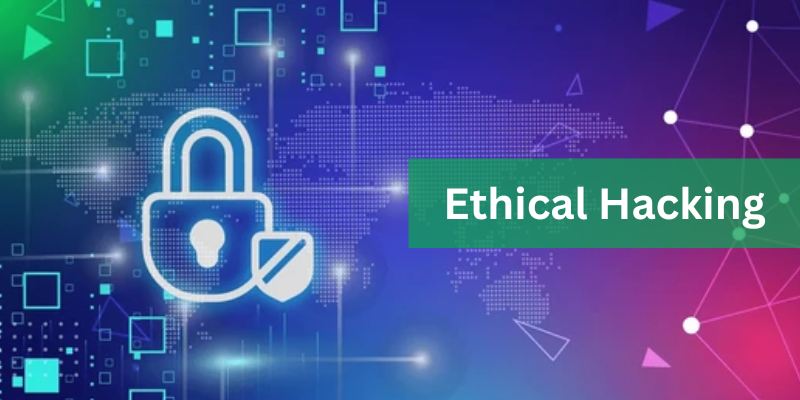Ethical hacking plays a crucial role in data security by identifying vulnerabilities before malicious hackers can exploit them. Ethical hackers, also known as white-hat hackers, simulate cyberattacks to test and strengthen an organization’s defenses. This proactive approach helps prevent data breaches and ensures robust protection against evolving threats. By assessing systems and recommending improvements, ethical hackers contribute to a comprehensive security strategy. Their efforts are essential in maintaining the integrity and confidentiality of sensitive information. Enrol in an Ethical Hacking Course in Gurgaon, where you’ll gain essential knowledge in Ethical Hacking.
Understanding Ethical Hacking in Data Security
Ethical hacking is an essential practice in the realm of data security, aimed at identifying vulnerabilities within systems before malicious hackers can exploit them. These professionals, often called white-hat hackers, are tasked with simulating cyberattacks on an organization’s infrastructure to evaluate its defenses. The role of ethical hacking in data security is crucial, as it helps organizations stay one step ahead of cybercriminals by proactively identifying weaknesses and fortifying them.
Identifying Vulnerabilities Before Cybercriminals Do
A primary responsibility of ethical hackers is to uncover vulnerabilities that could potentially be exploited by cybercriminals. These vulnerabilities can be found in software, hardware, or even human behavior. By conducting penetration testing and vulnerability assessments, ethical hackers simulate real-world attacks to pinpoint weaknesses that would otherwise go unnoticed. These findings allow organizations to patch flaws, ensuring that their systems are secure from potential breaches. Join the Ethical Hacking Course in Kolkata, which aids in planning a network vulnerability assessment and penetration testing.
Testing Security Systems and Defenses
Ethical hackers also play a key role in testing an organization’s existing security measures. This includes evaluating firewalls, intrusion detection systems, and encryption protocols. By actively testing these defenses through controlled attacks, ethical hackers can assess how well they stand up against actual cyber threats. If any security layer proves to be ineffective or outdated, the hacker will provide recommendations on how to enhance it, making it harder for attackers to bypass.
Educating Organizations on Cybersecurity Best Practices
Ethical hackers don’t only identify technical vulnerabilities; they also help organizations understand the importance of cybersecurity best practices. By conducting security awareness training and advising on protocols like regular software updates, password management, and secure data storage, they empower businesses to make informed decisions. This holistic approach ensures that both the technical infrastructure and the human element of security are adequately protected. Explore an Ethical Hacking Course in Ahmedabad, which will allow you to protect your data from potential risks and unknown sources.
Providing Real-World Solutions and Strategies
Ethical hackers are not just problem identifiers; they are also solution providers. Once they find vulnerabilities, they work alongside an organization’s IT team to develop a comprehensive strategy for resolving the issues. These solutions may involve implementing new security software, enhancing employee training programs, or recommending specific changes to the system architecture. The aim is to make the organization’s data security strategy more robust and less prone to attacks. Dive deeper into the principles of Ethical Hacking and enrol in the Ethical Hacking Course in Delhi.
Ensuring Compliance with Security Regulations
Many industries, particularly those handling sensitive data such as finance and healthcare, must comply with strict data protection regulations. Ethical hackers play a vital role in helping organizations adhere to these legal and regulatory requirements. Through vulnerability assessments and security audits, ethical hackers ensure that businesses meet the necessary compliance standards. This reduces the risk of legal penalties and enhances the organization’s reputation in terms of data privacy and protection.
Simulating Cyber Attacks to Test Responses
One of the most valuable roles of ethical hackers in data security is conducting red team exercises. In these simulations, they launch controlled cyberattacks to test how an organization responds under pressure. These exercises help identify gaps in the incident response plan and enable businesses to refine their procedures for handling actual security incidents. Testing these protocols in a simulated environment provides invaluable insights into how to better defend against real attacks.
Reinforcing the Need for Ongoing Security Measures
Cybersecurity is an ever-evolving field, and what works today may not be enough tomorrow. Ethical hackers help to reinforce the idea that security measures should never be static. By continuously assessing systems, they ensure that organizations are always prepared for new types of cyber threats. This ongoing process of evaluation and improvement helps businesses maintain a proactive stance against the dynamic nature of cybercrime. Enrolling in the Ethical Hacking Course in Jaipur is the right path to building your career.
Building Trust with Clients and Customers
A strong cybersecurity stance can be a key differentiator for businesses in today’s market, especially when it comes to consumer trust. Ethical hacking plays a crucial role in building this trust by demonstrating a commitment to protecting sensitive data. Companies that regularly conduct security assessments and follow up with improvements are seen as more trustworthy by their clients and customers. This trust is essential for retaining existing clients and attracting new business.
Responding to Emerging Threats and Attacks
Ethical hackers are also at the forefront of detecting and responding to emerging cyber threats. The cybersecurity landscape is constantly changing, with new vulnerabilities and attack methods appearing regularly. Ethical hackers stay ahead of these trends by continually refining their skills and techniques. Their expertise in identifying and mitigating new threats allows them to help organizations prepare for attacks that may not yet be widely recognized by the public or other security experts.
Fostering a Culture of Security
Incorporating ethical hacking into an organization’s security strategy fosters a culture of vigilance and constant improvement. Ethical hackers work to ensure that security becomes ingrained in every layer of the organization, from top management to entry-level employees. When employees understand the importance of ethical Hacking in safeguarding data and are trained to spot potential threats, the overall security posture of the company improves. Ethical hacking thus plays a vital role in creating a comprehensive security culture that supports long-term protection.
Ethical hacking is a vital component of data security, enabling organizations to identify and address vulnerabilities before they can be exploited. By proactively testing defenses and promoting best practices, ethical hackers strengthen overall security. Their work ensures compliance with regulations and builds trust with clients. Ultimately, ethical hacking is essential for maintaining a secure and resilient digital environment.
Also Check: SQL Injection In Ethical Hacking



